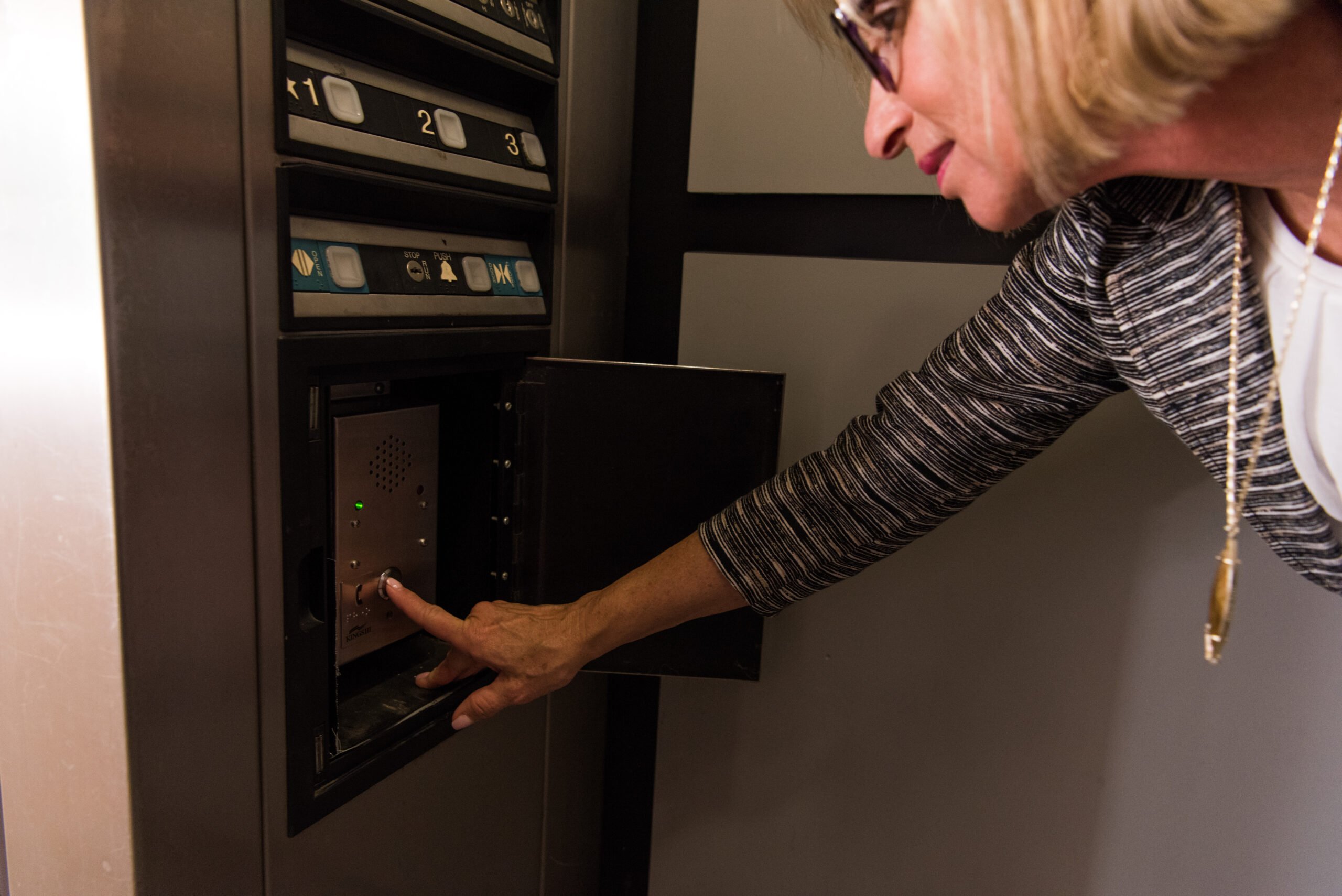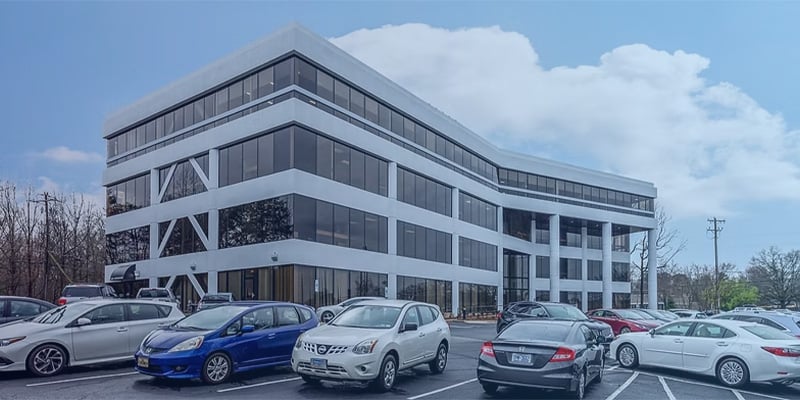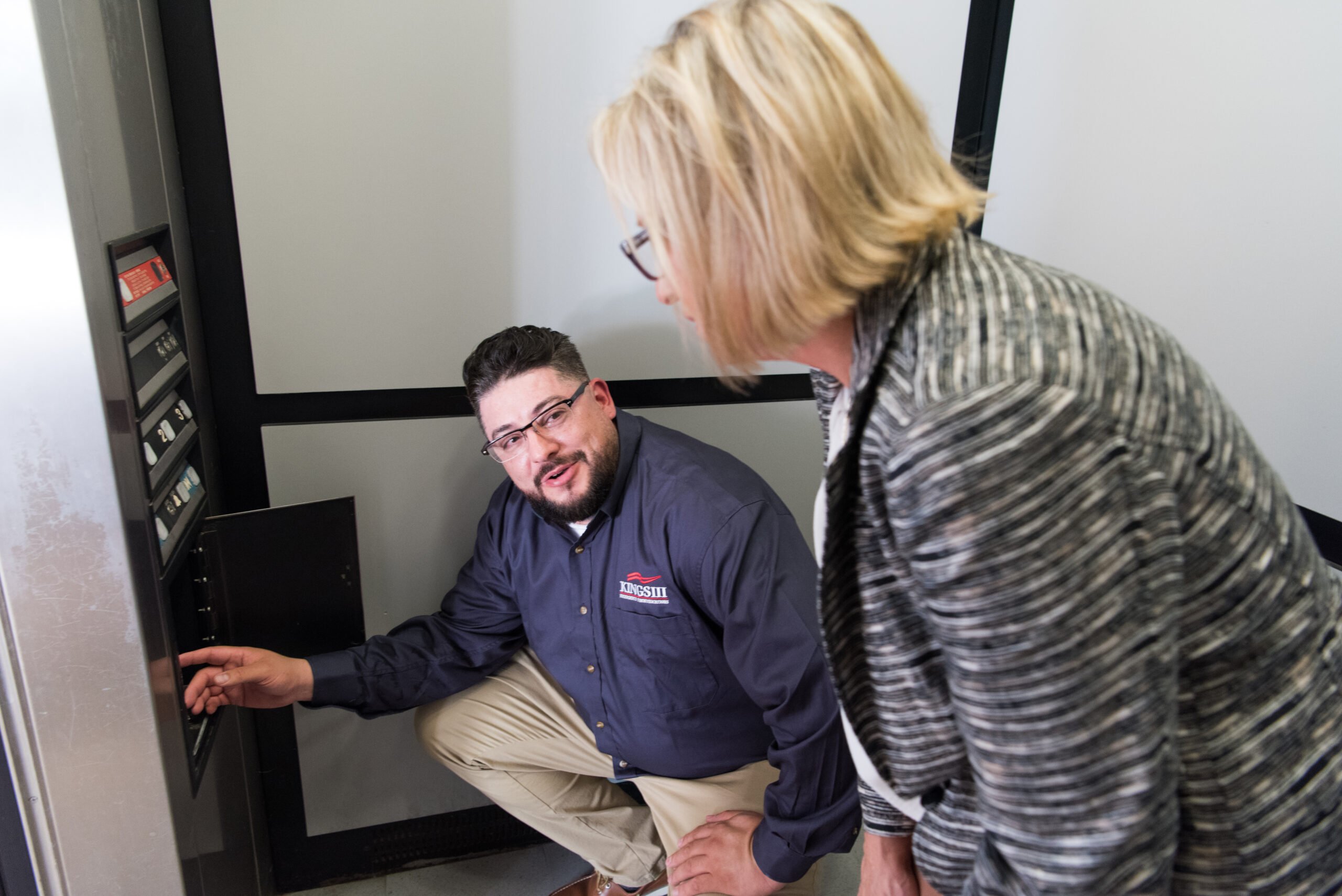Your Site Requires a Reliable Elevator Emergency Phone Response.

With 18 billion elevator trips in the U.S. annually, it’s inevitable that some will experience malfunctions. These issues can stem from simple wear and tear or errors in the elevator’s internal diagnostic system that need to be cleared to bring it back online. Getting stuck in an elevator is not just inconvenient; it can also be unsafe and often amplifies or induces other health conditions, which means the importance of a robust solution for the emergency phone for elevator cabs can’t be understated.
At Kings III, we offer a range of top-of-the-line elevator emergency phone service options, available in both cellular and standard phone line choices, to cater to each elevator’s unique needs. But we’re more than just a phone provider. Our all-inclusive solution covers equipment and installation, lifetime maintenance, and 24/7/365 emergency elevator monitoring. We aim to ensure your elevator phone systems is always reliable, no matter the situation.
Find out how to improve safety and reduce costs at your property
Our best-in-class emergency phone + monitoring solutions provide peace of mind and are backed by decades of expertise
Learn More
2024 ELLIES WINNER
Best Supplier -
Communication System
Our ADA Code Compliant Emergency Elevator Telephone Monitoring Solution
With the push of the emergency elevator call button, the emergency call is connected to our emergency dispatch center, where live operators are available 24/7. Our operators assess the needs of the passengers and take appropriate action, either following a call list designated by you or dispatching emergency services as needed.
If a passenger requires immediate medical attention, a Kings III operator can provide assistance. Our operators are Advanced Emergency Medical Dispatch (AEMD) certified, allowing them to offer step-by-step pre-arrival instructions, including CPR, if necessary. This certification exceeds national requirements, ensuring our operators can handle emergency calls appropriately and deliver the response the caller deserves.
If no medical attention is needed but an emergency caller is scared or anxious, the operator will stay on the line to offer continual reassurance until the passenger is calmed or released. We can also notify loved ones or employers of the situation on behalf of the caller.
If a call is activated from the same area more than once in an hour and no one in the cab responds, our operators will contact onsite personnel to check on the elevator.

We receive emergency elevator phone calls for many reasons, even when the elevator is fully functional. Imagine traveling down a high-rise building in an elevator and someone next to you collapses. You reach for your cellphone to call for help, but you are surrounded by metal and the cell signal is spotty at best. You could wait until the elevator reaches its destination, or you could initiate a potentially life-saving call immediately by activating the emergency elevator call button.
Beyond medical emergencies, we handle emergency elevator telephone calls from for a variety of situations, from people getting lost on-site to victims seeking refuge in an elevator cab to escape an attacker.
What about accidental dials and false alarms, perceived as false or otherwise? One of the many benefits of Kings III’s emergency elevator phone monitoring service is that it allows us to mitigate false alarms and prevent them from tying up vital resources such as police, firefighters, and EMS. Rest assured, however, that if there are any issues with communication during the emergency call, if we can hear the caller but he or she cannot hear us, we do not stop until we can ensure that no emergency exists.
If any of the scenarios above occur and we cannot verify whether everything is alright through the phone that was activated, we take special measures. In situations where we can hear a caller on the line but can’t get a response, an operator will begin contacting those listed on an emergency call list designated by the property so that someone on-site can look into the situation. As the property owner, you get to choose ahead of time exactly who is called, at what number, and in what order. If we’re able to reach someone to go and check that everything is alright at the area that the call originated from, the process can end there. Otherwise, if we are unable to reach anyone on the call list, then the call will be escalated to the appropriate emergency authorities.
Additional Information: Elevator Emergency Phone Communication Line Specification Type
See our expert emergency response in addition to analog line powered options:
- Cellular elevator phone
- If you’re tired of the headache and cost of analog phone line compliance, read about our cellular elevator emergency phone solution.
- VoIP elevator phone
- Important to note: utilizing your IP address for such communications can present security issues.
View Our Elevator Phone Service in Action in our Customers’ Elevators
Emergency Planning Product Details: Shop our Flush Mount and Surface Mount Elevator Emergency Phones and Phone Accessories
As code requirements tighten, it becomes increasingly important to trust an emergency phone expert when choosing among the myriad of solutions available. Our help phones are designed, assembled, and supported in the USA. We design our emergency equipment with elevator emergency phone code compliance and caller experience in mind, staying at the forefront of code and technology changes.
Some Commonly Asked Questions About Elevators and Emergency Elevator Phones
-
How do elevator phones work?
Simply put, they allow for people within an elevator cab who may need help to connect to someone outside of the elevator via a phone line connection, whether it be cellular or landline. See how to test for a compliant phone here.
-
Are emergency phones required in elevators?
Yes-- an emergency elevator phone is required in any public elevator in the United States. You can visit our code database to determine more specific requirements by state.
-
How do you call in an elevator during emergencies?
A phone button near all other button keypad options should be visible to you. Simply press the button to place a call and get connected to help.
-
Do cell phones work in elevators?
Unfortunately, there is not a straightforward answer here. The most definite answer we can give is that it depends. However, it’s crucial to have a reliable elevator emergency call button setup. Dropped calls on cell phones are not uncommon in elevators, and various factors—including signal strength and elevator design—can significantly impact communication reliability in emergency situations.
-
What does the emergency button in an elevator do?
If code-compliant, when pushed, an elevator emergency call button should initiate a phone call in which the elevator passenger can connect and speak to someone designated to answer calls placed from the elevator cab. This varies by service, but at Kings III, all calls go to our Emergency Dispatch Center (EDC), where live operators are available 24 hours a day, 7 days a week. Our operators assess the needs of the passengers and act accordingly, following a call list designated by you or dispatching emergency services as needed. Having a reliable emergency phone elevator system ensures that assistance is just a button press away, reinforcing the safety of all passengers in the building. See our recommended minimum standards for emergency elevator phone monitoring here.

















